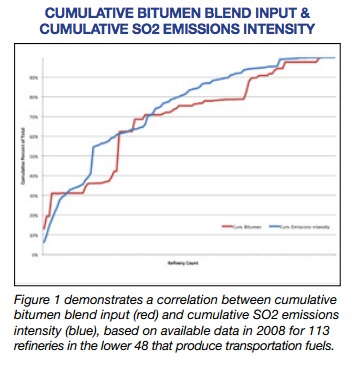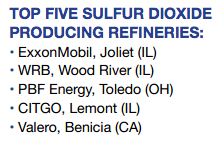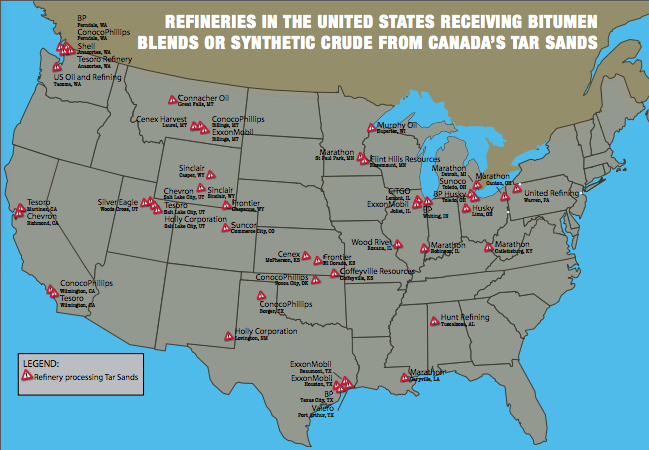Toxins from refineries processing tar sands bitumen are dangerously polluting the air of local communities in the United States, according to a recent report by ForestEthics. Areas surrounding tar sands refineries – where a higher proportion of society’s vulnerable minority, aging and poor communities live – exhibit intense levels of sulfur dioxide (SO2) as a result of the high sulfur content of bitumen feed stocks used in the process. Sulfur dioxide pollution is associated with asthma and heart disease.


In addition, those communities living in close proximity to refineries handling tar sands bitumen are put at an elevated risk: “short term-exposure to elevated sulfur dioxide levels is associated with reduced lung function, chest tightness, wheezing, shortness of breath, respiratory illness, deterioration of the lung’s defense systems, and the aggravation of cardiovascular systems.”

Subscribe to our newsletter
Stay up to date with DeSmog news and alerts







